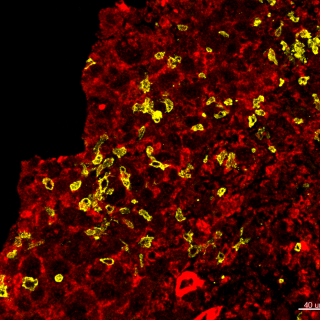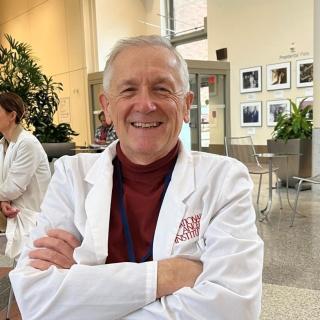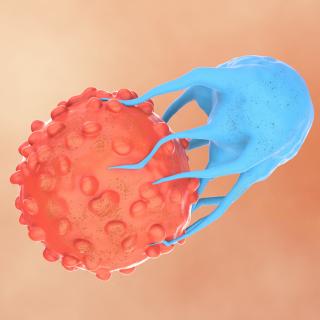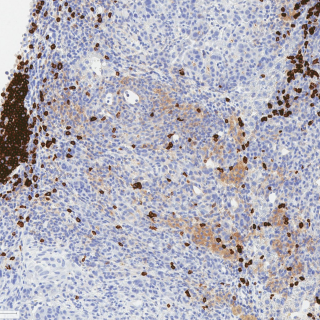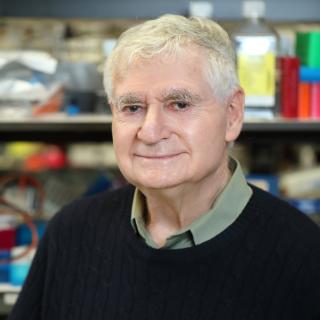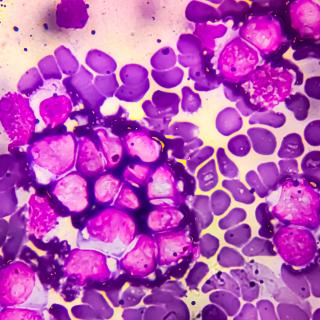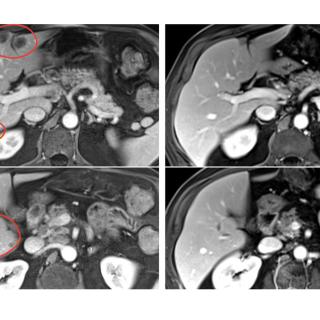News and Events
Proteins Released from the Nuclei of Dying Cancer Cells Promote Tumor Growth
Material released from dying cancer cells, known as tumor cell nuclear expulsion products (TuNEPs), contains specific proteins that promote the growth of neighboring cancer cells. Targeting these proteins could lead to new treatments that hinder cancer spread and improve patient outcomes.
Read MoreStem cell–derived natural killer cells engineered to attack solid tumors
Cancer-killing natural killer cells could pave the way to off-the-shelf immunotherapy for solid tumors.
Read MoreRuth Nussinov elected to the National Academy of Sciences
The National Academy of Sciences elected Ruth Nussinov, Ph.D., Senior Investigator in the Cancer Innovation Laboratory, as a member of their organization. She is being recognized for her groundbreaking achievements as a computational structural biologist.
Read MoreOffering “life-sustaining” treatment without compromising quality of life
When Alison James received her diagnosis of squamous cell carcinoma, she was alarmed by the side effects associated with the standard of care. She traveled to the NIH Clinical Center for a CCR clinical trial that offered treatment with less impact to her quality of life.
Read MoreCelebrating CCR Careers: Steven Z. Pavletic, M.D., Ph.D.
Steven Z. Pavletic, M.D., Ph.D., is a renowned expert in chronic graft-versus-host disease, a serious late complication that can happen after allogeneic bone marrow transplants. After serving at the NCI for over 20 years, he is now announcing his retirement.
Read MoreT-cell receptors can help CAR T cells steer clear of healthy tissue while they attack tumors
Adding a specific T-cell receptor to CAR T cells may reduce side effects of immunotherapies designed to target solid tumors.
Read MoreStudy uncovers mechanism behind effectiveness of three-drug combination in patients with a rare bile duct cancer
Combining anti-VEGF therapy with immune checkpoint inhibitors stimulated the production of B cells to fight cholangiocarcinoma, a rare bile duct cancer.
Read MoreCelebrating CCR Careers: Ira Pastan, M.D.
Ira Pastan, M.D., who pioneered receptor biology in animal cells and mentored several generations of scientists, announces his retirement from the NCI.
Read MoreCondition of patients’ immune cells can affect how they respond to immunotherapy
Researchers found that T cells in patients whose cancers did not respond to CD22 CAR T-cell therapy showed markers of cellular exhaustion and were in a later stage of development.
Read MoreS. Cenk Sahinalp elected to 2025 class of ISCB Fellows
S. Cenk Sahinalp, Ph.D., Senior Investigator in the Cancer Data Science Laboratory, was elected to the 2025 class of International Society for Computational Biology (ISCB) Fellows. The program recognizes individuals who have played a pivotal role in advancing bioinformatics and computational biology. Sahinalp is being honored for his work as a leader in algorithmic methods for cancer genomics, structural variation and tumor evolution.
Read MoreCombination immunotherapy shrank a variety of metastatic solid cancers
Results of a clinical trial led by Steven A. Rosenberg, M.D., Chief and Senior Investigator in the Surgery Branch, showed that a new form of tumor infiltrating lymphocyte (TIL) therapy dramatically improved the treatment’s effectiveness in patients with metastatic gastrointestinal cancers. The findings, published April 1, 2025, in Nature Medicine, offer hope that this personalized immunotherapy regime could be used to treat a variety of solid tumors, which has so far eluded researchers developing cell-based therapies.
Read More
